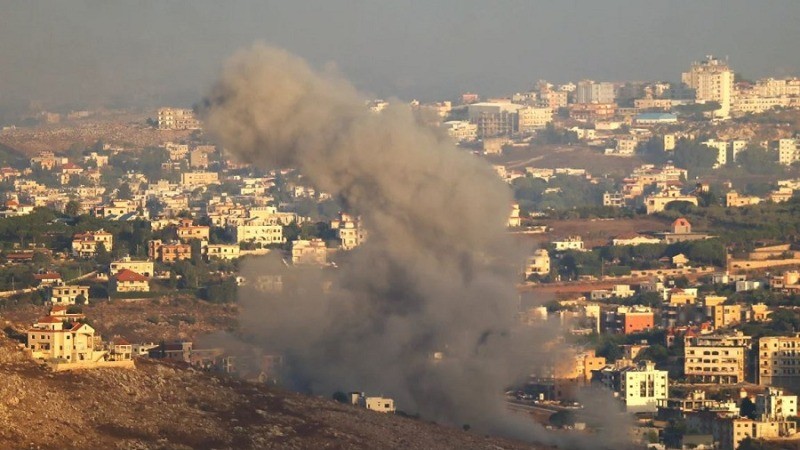
Israel has launched a series of devastating attacks against Hezbollah, causing significant casualties and destruction in Lebanon. This week, bombs concealed in Hezbollah's communication devices killed numerous individuals and injured thousands, including many Hezbollah fighters. Israeli airstrikes on Beirut resulted in the deaths of two key commanders, while the military targeted approximately 1,600 sites associated with militants across Lebanon, leading to hundreds of fatalities and displacing thousands.
Israel's stated goal is to secure its border, allowing tens of thousands of people who fled due to Hezbollah's actions nearly a year ago to return home. However, it remains uncertain if these tactical successes will lead to any substantial political gains or a real victory that can bring an end to the conflict in the north. "No one either in or out of the defense establishment has any clue as to how to translate these brilliant operational achievements into political benefit," wrote columnist Nadav Eyal in a local newspaper. "As long as Hezbollah retains any firepower, the northern border will not be able to return to normal."
Hezbollah began firing rockets into Israel shortly after Hamas' attack on October 7, aiming to divert Israeli forces to the north in support of its ally Hamas, which is also backed by Iran. The group claims it would halt attacks if a cease-fire were declared in Gaza, though this seems increasingly unlikely.
In response to the recent escalation, Hezbollah's counterattacks have been limited. Despite firing hundreds of rockets and drones into northern Israel, the damage inflicted has been minimal. Experts believe that Hezbollah is capable of enduring the Israeli strikes and is likely conserving its most powerful weapons for future engagements.
The effectiveness of Israel's airpower has limits. The airstrikes resemble previous military operations, such as the U.S. invasions of Iraq and the NATO campaign in Libya, which began with extensive air bombardments but eventually required ground troops to achieve their objectives. Israel’s conflict with Hamas also started with heavy aerial assaults, followed by a ground invasion, yet Hamas remains resilient.
Israel's current strategy against Hezbollah appears to focus on preventing further attacks rather than completely disarming the group. However, achieving even this limited goal may necessitate a ground invasion. The risk of mission creep looms large, as seen in previous U.S. military interventions.
Israeli Defense Minister Yoav Gallant claimed that the recent strikes had destroyed tens of thousands of Hezbollah rockets and missiles, asserting that it was the most challenging week for Hezbollah since its formation. While Hezbollah has acknowledged significant losses, many believe the group still possesses considerable resources. "The rocket unit is still active; Hezbollah has absorbed the initial shock, and the battle has only begun," said Qassim Qassir, a former member of Hezbollah.
Originally formed with Iranian support following Israel's invasion of Lebanon in 1982, Hezbollah has survived numerous conflicts and continues to replenish its arsenal. Estimates suggest the group has around 100,000 fighters and possibly 150,000 rockets and missiles, including long-range and precision-guided varieties.
Hezbollah's military capabilities exceed those of Hamas, benefiting from a broader operational area and stronger supply lines linked to Iran. In the event of a ground invasion, Hezbollah fighters could be joined by thousands of other Iran-backed militants from the region.
Israel currently has no immediate plans for a ground invasion but is prepared for one. As the air campaign continues, Israeli leaders may be tempted to escalate their military response if Hezbollah does not yield. A ground invasion, even with the goal of creating a secure buffer zone, poses significant risks, including increased casualties among Israeli soldiers and prolonged conflict.
International condemnation of Israel's actions in Gaza has already been significant, and further military actions in Lebanon could lead to even greater backlash.
For Hezbollah, the options are similarly limited. Ceasing attacks could be perceived as surrendering to Israeli pressure, while escalating attacks could provoke a devastating Israeli retaliation, risking further devastation for Lebanon.
This precarious situation leaves both Israel and Hezbollah in a tense standoff, with the potential for further conflict looming in the coming weeks.